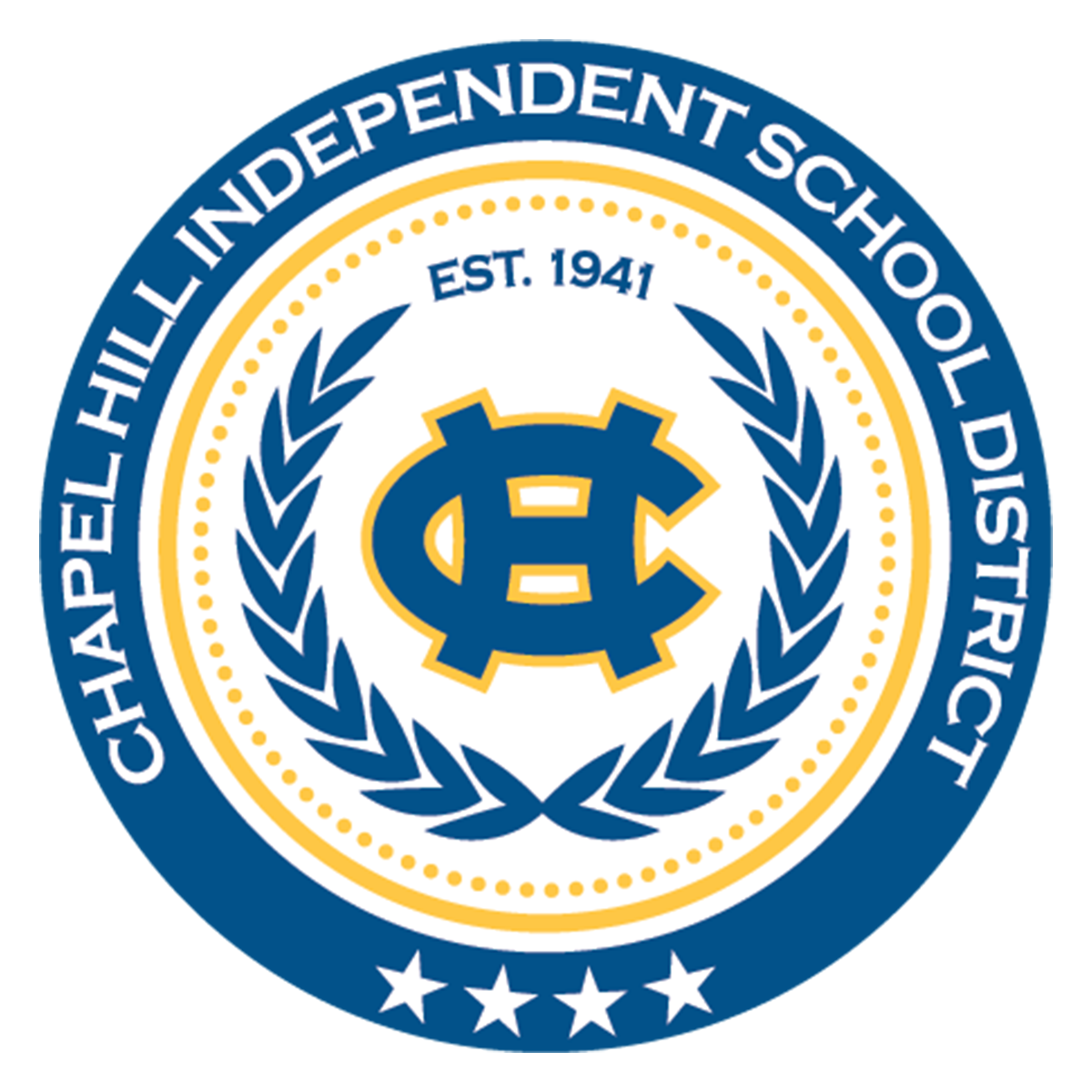Accountability
Quick Links
Accreditation Status
TEA accredits public schools in Texas at the district level for grades K-12.
Chapel Hill ISD is an Accredited District for 2021-2022
For more information, visit TEA Website-Accreditation Status (search by district name)
Accountability Rating
The 85th Texas Legislature passed House Bill (HB) 22, establishing three domains for measuring the academic performance of districts and campuses:
Student Achievement, School Progress, and Closing the Gaps.
This year, districts received a rating of A, B, C, D, or F for overall performance, as well as for performance in each domain. Individual campuses will receive A–F ratings beginning in August 2019. The Texas Education Agency (TEA) has released results of the latest version of State Accountability.
For more information on the new rating system, visit TEA website: A-F Accountability Resources.
In 2022, CHISD received an accountability A-F rating of an B (85) and "Met Standard".
If you would like to learn more about the accountability system and view campus ratings please visit TEA Website-2023 Accountability Rating System.
Overview of the State Accountability System
Overview of 2023 Accountability
Gives an overview of the structure of the accountability system for 2023.
Frequently Asked Questions
Answers questions that are commonly asked about the accountability system.
Texas Academic Performance Report
The current Texas Academic Performance Reports (TAPR) are now available at the link below. TAPR combines details of district and campus academic performance with financial reports and information about staff, programs, and demographics.
TEA Website-Texas Academic Performance Report
(select to search by campus or district and then enter campus/district name)
Additional Information
Link to TAPR Glossary of Terms (TAPR Glosario Spanish translation of the glossary will be available at a later date.)
PEIMS Financial Standard Report
(Chapel Hill ISD's CDN: 212909)
School Report Cards
The current School Report Card (SRC) is now available on the Texas Education Agency website at the link below. The school report card (SRC) combines accountability ratings, data from the Texas Academic Performance Reports (TAPR), and financial information to give a broad view of campus performance. Available for each campus in Texas, the SRC is intended specifically to inform parents and guardians about a school’s academic performance.
The accountability reports and resources will be available on this page as they are released.
Link to TEA Website-School Report Cards
A glossary of terms used in the school report cards can be found at the link below:
Federal Report Card
The U.S. Department of Education requires each state to publish an annual report card with specific district- and campus-level data.
Every district that receives Title I, Part A funding is responsible for distributing the state-, district- and campus-level report cards to each of its campuses, the parents of all enrolled students, and the general public.
ESSA (Every Student Succeeds Act)
The Every Student Succeeds Act (ESSA) was signed by President Obama on December 10, 2015, and represents good news for our nation’s schools. This bipartisan measure reauthorizes the 50-year-old Elementary and Secondary Education Act (ESEA), the nation’s national education law and longstanding commitment to equal opportunity for all students.
The new law builds on key areas of progress in recent years, made possible by the efforts of educators, communities, parents, and students across the country.
ESSA includes provisions that will help to ensure success for students and schools. Below are just a few. The law:
Advances equity by upholding critical protections for America's disadvantaged and high-need students.
Requires—for the first time—that all students in America be taught to high academic standards that will prepare them to succeed in college and careers.
Ensures that vital information is provided to educators, families, students, and communities through annual statewide assessments that measure students' progress toward those high standards.
Helps to support and grow local innovations—including evidence-based and place-based interventions developed by local leaders and educators—consistent with our Investing in Innovation and Promise Neighborhoods
Sustains and expands this administration's historic investments in increasing access to high-quality preschool.
Maintains an expectation that there will be accountability and action to effect positive change in our lowest-performing schools, where groups of students are not making progress, and where graduation rates are low over extended periods of time.
